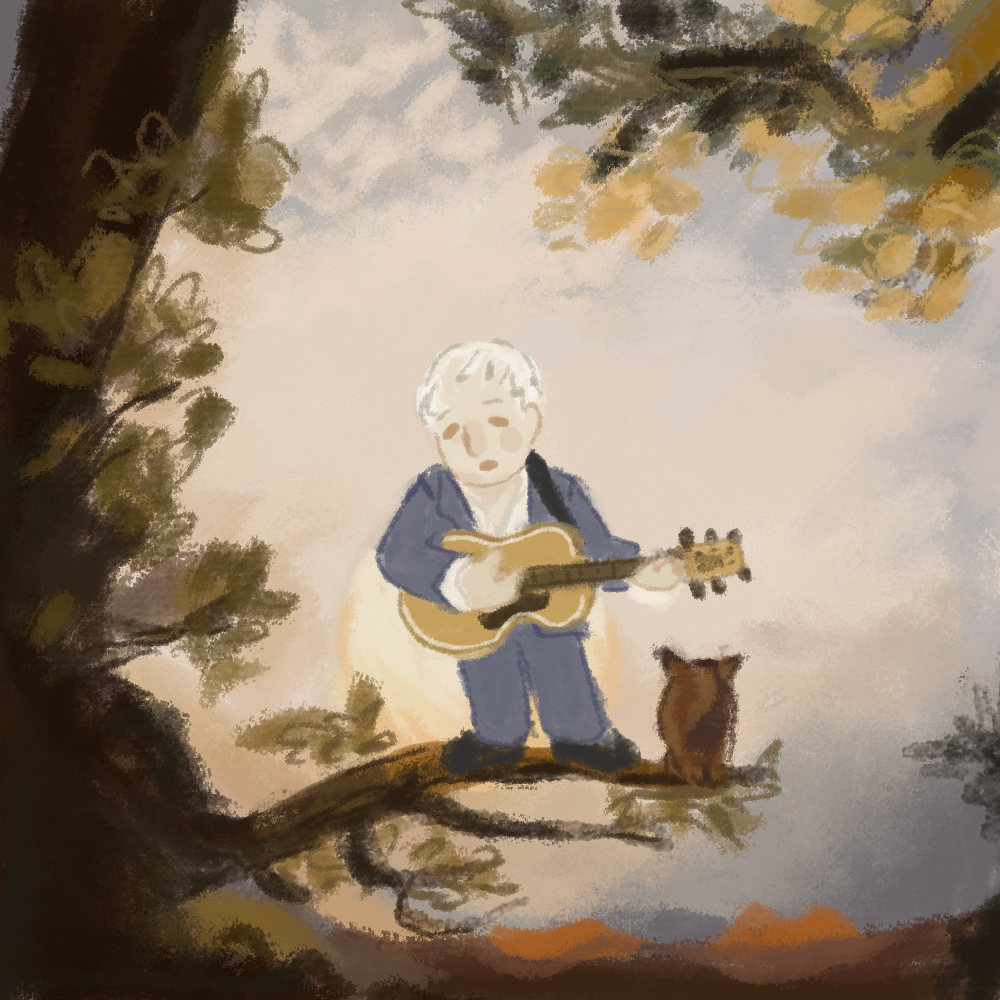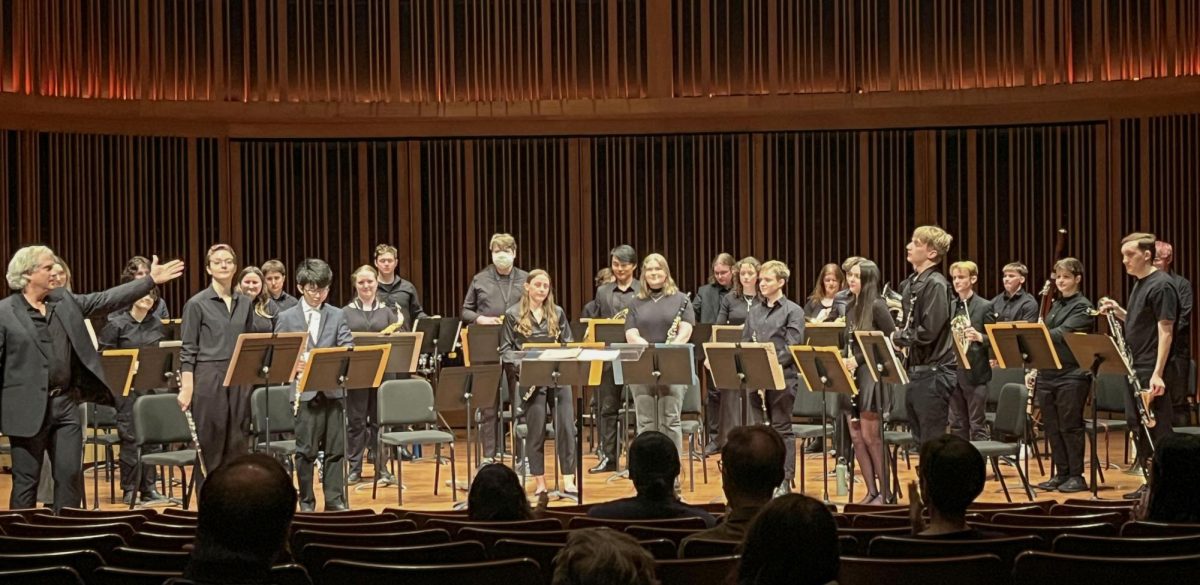Late last Thursday night, a horde of eager fans gathered in front of the glowing Sencha sign on Grand Avenue. Despite impending homework and sleeplessness, Macalester students arrived by the dozens. All came for the night of performance entitled “Sencha After Hours”, which was organized by Macalester’s own Talia Young ’17.
While sipping their complimentary tea, they witnessed a unique spectacle: slam poetry meets storytelling meets music by local artists. The result? A night of wordplay and talent from some young rising stars.
The proceeds of the event went to Tubman, a non-profit organization that supports those struggling with relationship abuse and mental health issues. This choice of non-profit was not an accidental; in fact, the themes around Tubman’s mission statement echoed throughout several performances. Poetry by Neil Hilborn, Blythe Baird and Sarah Ogutu was particularly resonant with issues of mental health and abuse.
Hilborn, a 2011 graduate of Macalester, spoke mostly of the former. His poem “The Future” described depression and disturbed cognitive functioning. His language was akin to the content of the poem: haunting and thrilling, yet oddly beautiful. As an expert in both crafting and delivering cadences of poetry, Hilborn kept the audience hooked on his every word. In a community greatly affected by issues of mental health, this message rung true. Mental instability is stigmatized too often, and Hilborn’s words open up a much-needed conversation.
But do not mistake his poems for PSAs. As well as raising awareness for mental illness, they also reveal its complexity through nuance only poetry can achieve. Hilborn does not condemn depression, nor does he celebrate those artistic icons whose brilliance seems bound up with their depression. Instead, he declares that “the sadness is my old paint under the new… I’d still be me without it, but I’d be so boring.”
Boring is the last word I’d use to describe his performance, as well as that of Sarah Ogutu. She too spoke of depression in her poem, “After the Storm.” In the aftermath of the illness and the substance abuse, she found solace in having survived “the storm.” She used this imagery to expose her personal experience, laying it bare for all to see. She addressed those who have found themselves trapped in psych wards or existential crises. And she made all her listeners aware of that suffering.
Blythe Baird, the third poet of the night, was also intent on raising awareness about a quiet suffering. She described the misogyny and sexual harassment that women withstand every day. For her, this was a personal issue. Her poem “Pocket-Sized Feminism” describes how she always stands up for women’s rights at “poetry slams or women’s studies classes,” but rarely in the real world. Others snapped along in agreement, nodding at her description of “wallpaper women” who are trained not to speak up for what they believe in.
While these three poets spoke about vastly different issues, from race to gender to mental health, their purposes in writing shared commonalities. Each poet drew from their own experiences, speaking to end the silence around hardships they have long withstood. Regardless of whether each audience member could relate to these stories, they still listened, transfixed and empathetic.
In between poetry performances, music provided a break from the heat. First, the Macalester Sirens stole the hearts of sailors and laymen alike. Their calming sound matched the interior of the tea bar, which was coffee-shop-esque. One could have easily read Ginsberg or Kerouac to the voices of these talented women. The next performance transformed the atmosphere once more, encouraging one to put down one’s book, jump up and dance.
These performers were Macalester’s own Ryan Dugan ’17 and Hannah Scout Field ’17, whose band is aptly named The Scouting Report. With Dugan on guitar and Scout Field on electric violin, the two accompanied their own vocals and harmonized with ease. Dugan later sang alongside Hank Hietala ’17, who describes his style as a cross between that of Josh Ritter and Tallest Man on Earth.
The night finished with a heartwarming story told by Anna Caroline ’18 and the polyglottic rap of Bo Kim ’17. Kim rapped about injustice while expressing her identity as a Korean-American, rapping in both English and Korean.
As the night tapered down and the caffeine wore off, crowd members murmured their contentment. The event was a tasteful mix of music and spoken word, Macalester talents and community artists. I hope to see this type of event again at Sencha or elsewhere in the Twin Cities, regardless of whether tea is involved.







Vanessa Quinn • Sep 7, 2019 at 2:20 am
Hi, I do believe this is a great blog. I stumbledupon it 😉 I’m going to return once again since i have book-marked it. Money and freedom is the best way to change, may you be rich and continue to help other people.
Boyd • Sep 1, 2019 at 11:06 am
Ahaa, its nice dialogue concerning this piece of writing here
at this web site, I have read all that, so now me also commenting here.
kari • Aug 13, 2019 at 5:52 am
I just couldn’t go away your site prior to suggesting that I extremely enjoyed the standard info an individual supply on your guests? Is going to be back regularly to check out new posts.
harbor freight Coupons • Jul 30, 2019 at 7:46 pm
This is very interesting, You are an extremely skilled blogger. I’ve joined your rss feed and glimpse ahead to seeking more of one’s fantastic post. Furthermore, I ave shared your site in my social networks!
NoodlesCompanycoupons • Jul 30, 2019 at 12:37 pm
Yes, nice posting but In the initial step. You stated promote in order to individuals which you have defined inside your article.
Native Deodorant • Jul 30, 2019 at 8:48 am
great post mate, even though discover a problem with backlinking in terms of ecommerce.
Peter Piper • Jul 30, 2019 at 4:29 am
Thanks for publishing the brilliant post. The hyperlink has been explained by you constructing methods incredibly.
skyzonecoupons • Jul 29, 2019 at 5:53 pm
Thanks for disclosing the particular brilliant post. A person explained the hyperlink building methods remarkably.
Noomcoupon • Jul 29, 2019 at 2:03 pm
excellent post mate, even though discover an issue along with backlinking in relation to web commerce.
Chewy coupons • Jul 29, 2019 at 10:46 am
Carries anyone got any true success through HARO? It simply seems that the majority of of the reporters mounted on the organization is going to be from the united states which you do not have much goals from other countries particularly within South Asia. Brian, are you able to direct us to the full occasion studies? Thanks.
Stockx Discount 2019 • Jul 29, 2019 at 8:37 am
Thanks for publishing the very brilliant post. A person explained the hyperlink constructing methods extremely.
freeprintspromocodes • Jul 29, 2019 at 6:47 am
Great post Brian the method that you covered all of the techniques for webmasters.
fatid • Apr 4, 2019 at 8:35 pm
Unquestionably believe that which you stated. Your favorite justification appeared to be on the web the simplest thing to be aware of. I say to you, I certainly get irked while people consider worries that they just don’t know about. You managed to hit the nail upon the top and defined out the whole thing without having side-effects , people can take a signal. Will probably be back to get more. Thanks